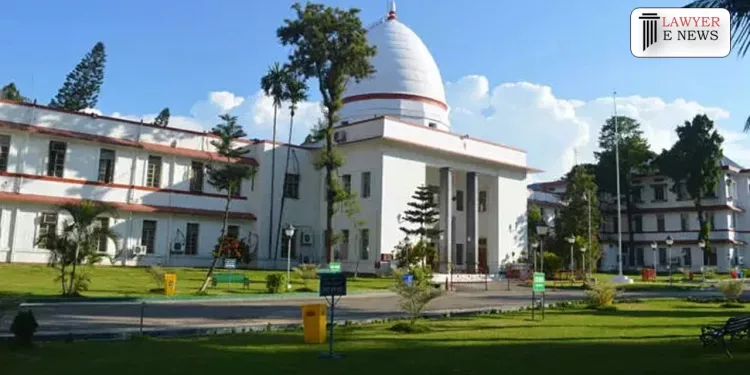Section 156(3) Cr.P.C. Investigation at Pre-Cognizance Stage Justified: Gauhati High Court Upholds Magistrate’s Discretion in Bigamy Case

The Gauhati High Court has upheld the Magistrate’s decision to direct a police investigation under Section 156(3) of the Code of Criminal Procedure (Cr.P.C.) in a case involving charges of bigamy, obscene acts, criminal intimidation, and criminal trespass. The petitioner, Ishan Saikia, sought to quash the FIR and charge-sheet, citing procedural lapses. However, the court affirmed the lower court’s action, emphasizing the appropriateness of initiating an investigation at the pre-cognizance stage.
Background: The case originated when the complainant, identified as the wife of the petitioner, filed a complaint alleging that Ishan Saikia had contracted a second marriage without dissolving the first. This led to the registration of Nagaon, Sadar PS Case No. 1374/2019 under Sections 494, 294, 506, and 447 of the Indian Penal Code (IPC). The Sub-Divisional Judicial Magistrate (SDJM), Nagaon, invoked Section 156(3) Cr.P.C., directing the Officer-in-Charge (OC) of Nagaon PS to investigate the matter. Following the police investigation, a charge-sheet was filed, which the petitioner subsequently sought to quash.
Court Observations and Views:
Magistrate’s Discretion under Section 156(3) Cr.P.C.: The court extensively discussed the scope and application of Section 156(3) Cr.P.C., clarifying the conditions under which a Magistrate can direct a police investigation. “The Magistrate is empowered to order an investigation at the pre-cognizance stage and is not obligated to take cognizance immediately upon receiving a complaint,” the judgment noted. This underscores the judicial discretion granted to Magistrates in such matters.
Application of Judicial Mind: The court observed that the Magistrate must apply judicial mind to the allegations before issuing any directives. In this case, the Magistrate’s order for investigation did not indicate judicial cognizance of the offense but was a preliminary step to ascertain the veracity of the complaint. The bench remarked, “The order u/s 156(3) of the Code is in the nature of an administrative order directing the police to exercise their powers to investigate a cognizable offense.”
Precedents and Judicial Interpretation: The judgment referenced key Supreme Court and High Court precedents, including the cases of Priyanka Srivastava vs. State of UP and Panchabhai Popatbhai Butani vs. State of Maharashtra. These cases highlight that while Sections 154(1) and 154(3) Cr.P.C. provisions are typically prerequisites, exceptions can be made where direct Magistrate intervention is justified. “The dictum of law is not free from exception because there can be cases when non-compliance of the provisions of Section 154(3) would not divest the Magistrate of his jurisdiction in terms of Sec. 156(3),” the court stated.
Justice Malasri Nandi emphasized, “The power to direct investigation by police u/s 156(3) is to be exercised before taking cognizance of the offense disclosed in the complaint. This administrative direction does not equate to judicial cognizance of the offense.”
Decision: The Gauhati High Court’s dismissal of the petition reinforces the judiciary’s discretion in ordering investigations under Section 156(3) Cr.P.C. at the pre-cognizance stage. By upholding the Magistrate’s order, the court affirmed the procedural appropriateness and necessity of police investigations in establishing the facts of a complaint. This decision is likely to impact future cases by clarifying the judicial framework surrounding pre-cognizance investigations.
Date of Decision: 20th May 2024
ISHAN SAIKIA vs. THE STATE OF ASSAM AND ANR.






